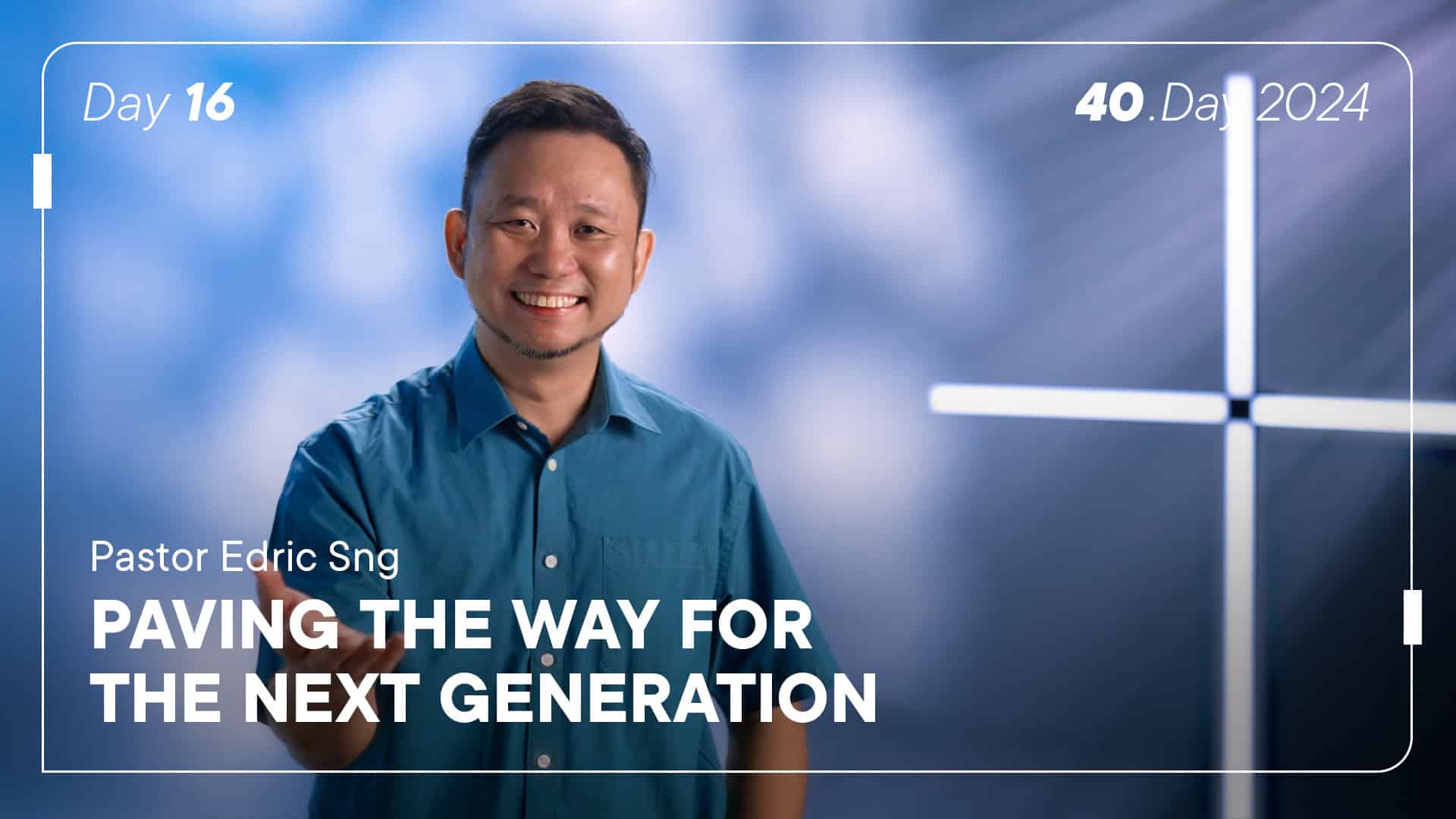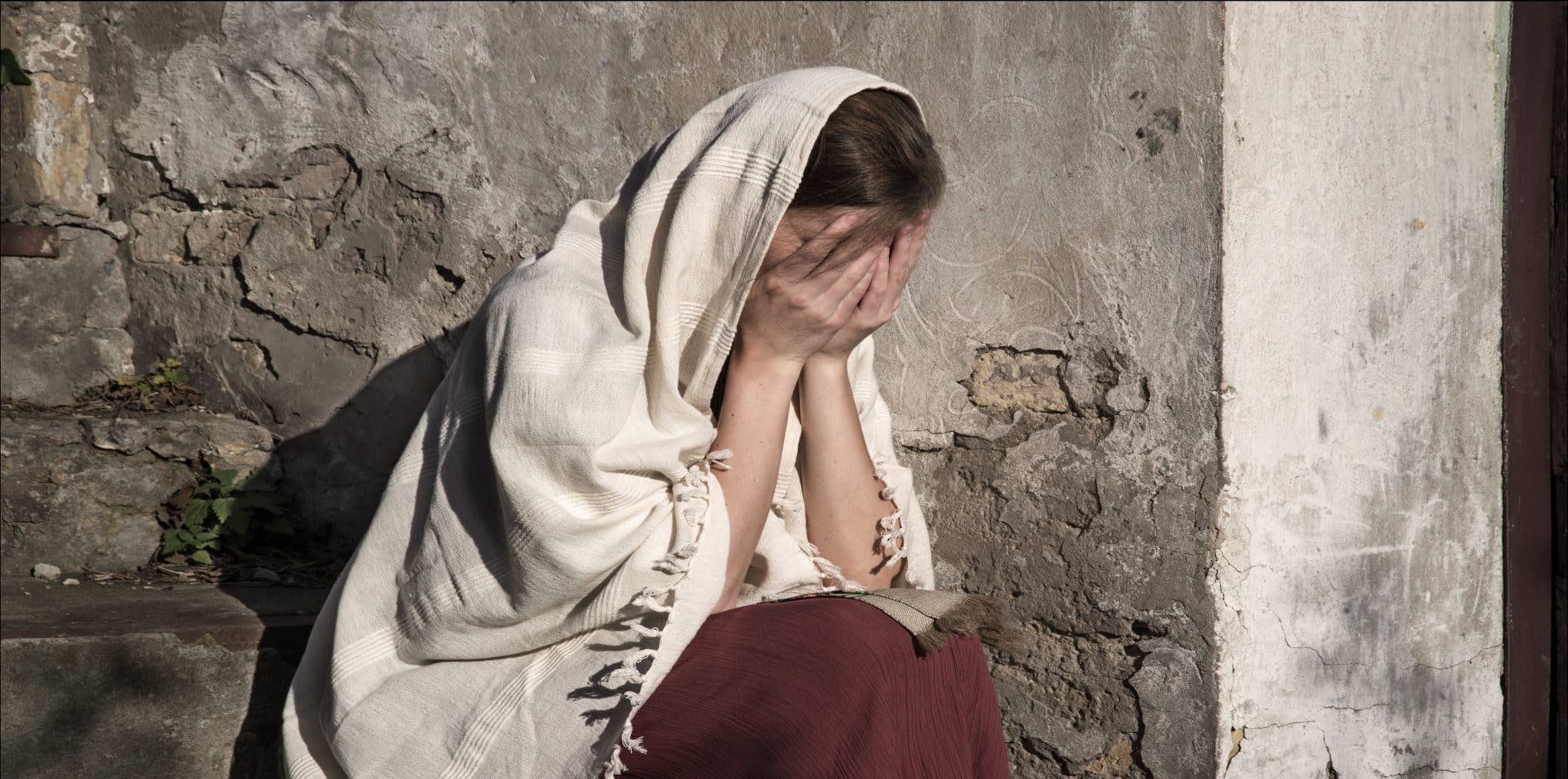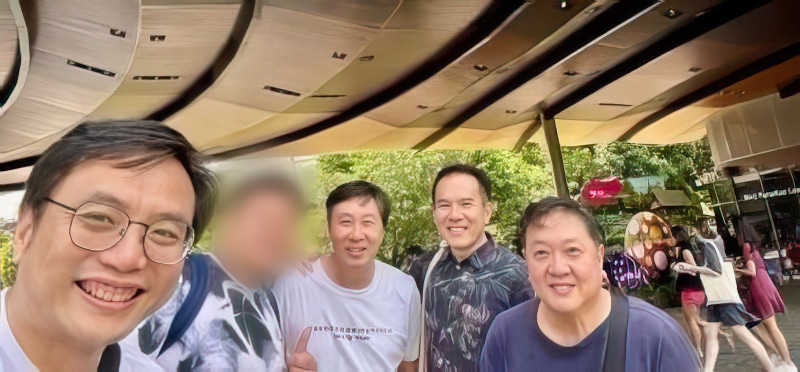Blind greeter, drummer with Down’s Syndrome, inspire participants at disability-inclusive course for churches
by Gracia Lee // August 31, 2020, 8:50 pm
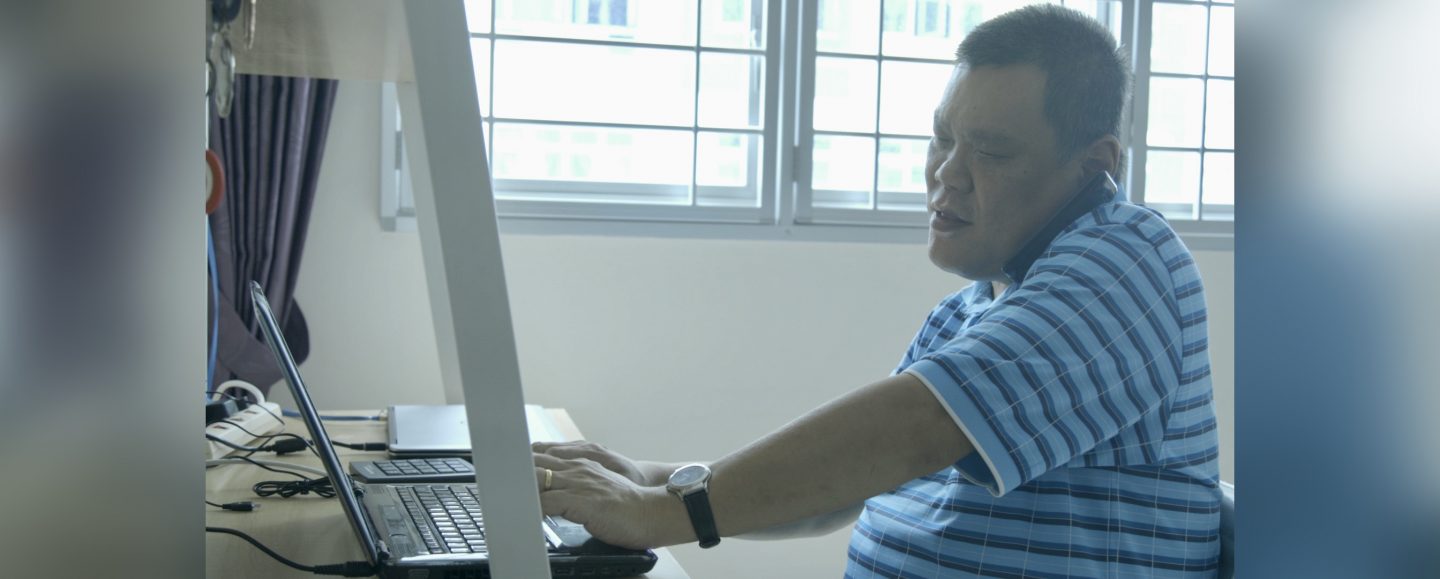
Peter Lim, 54, who is completely blind, said that serving in church makes him feel belonged and welcomed. Photo courtesy of KIN.
When Peter Lim first joined Prinsep Street Presbyterian Church (PSPC), he was shocked when someone invited him to join the church’s befrienders ministry.
“I said, how? I cannot welcome people!” recalled Lim, who had lost his sight completely when he was 10.
“In that way I served, and it made me feel very belonged.”
While his disability meant that he would have trouble spotting and approaching newcomers in church, the ministry offered him an opportunity to serve in another meaningful way – by calling and following up with newcomers during the week.
“In that way I served, and it made me feel very belonged,” said Lim, 54, who went on to be a faithful member of PSPC for the next 20 years, also serving for nine years as a sound technician in worship services.
Lim was sharing his experience as a person with disability at the first module of the Certificate of Christian Disability Ministry (CCDM) programme.
The module, which saw a full class of 40 participants from more than 25 churches, was held over two days via Zoom on Aug 8 and 15. It provided an introduction to people with disabilities, disability theology and the disability sector.
The CCDM programme has three modules, all of which aim to equip churches and its members to build disability-inclusive communities. It is a collaboration between Koinonia Inclusion Network (KIN), Scripture Union Singapore and the Biblical Graduate School of Theology.
Saved for good works
On the first day (Aug 8) of the module, Leow Wen Pin, lead trainer of the course and president of KIN, shared (amongst other things) two main reasons why the Church should include people with special needs.
“Including people with special needs is not a fad … It’s absolutely central to what it means to be Christians.”
Firstly, because the Church has been saved for good works (Titus 2:11-14; Ephesians 2:8-10), which includes embracing people who are different and making them feel welcome in our community.
“We are saved in order to reflect the character of our Lord Jesus to a hurting and broken world … Jesus shows a character that is inclusive of all, and so we cannot be a Church that is not like that,” said Leow.
He added: “Including people with special needs is not what we call a fad. It is not what we call being ‘woke’, like the millennials like to say.
“Including people with special needs is absolutely central to what it means to be Christians, because it is what it means to follow after the character of our Lord and Saviour, Jesus Christ.”
Parts of the same body
However, that is not the end of it, said Leow, lest we see people with special needs merely as a sympathetic addition to a Church of able-bodied believers.
The second, and perhaps lesser known, reason why the Church should include people with special needs is that they are vital and equally important parts of the body of Christ, he said.
He pointed to Ephesians 4:15-16, which says:
“Rather, speaking the truth in love, we are to grow up in every way into him who is the head, into Christ, from whom the whole body, joined and held together by every joint with which it is equipped, when each part is working properly, makes the body grow so that it builds itself up in love.”
“We shouldn’t just think about how we can love them, but how they can love us as people as well.”
Leow said: “In order for the Church to grow up into Christ, every single person needs to work, serve, to build up the Church … and this includes people with disabilities.”
People with disabilities have a role to play because they are all given gifts from the Spirit, he stressed.
Quoting 1 Corinthians 12, he noted that each believer is given the manifestation of the Spirit for the common good (1 Corinthians 12:7). Furthermore, parts of the body that seem to be weaker are, in fact, indispensable (1 Corinthians 12:22).
He said: “What this text tells us is that those people whom we think are weaker, are actually absolutely essential for the Church to be the Church.
“This means that we cannot look at people with disabilities only as objects of ministry … We cannot look at people with disabilities as though they are charity.
“We shouldn’t just think about how we can love them, but how they can love us as people as well.”
For each member of the Church to show equal care for one another, as commanded in 1 Corinthians 12:25, it is thus “absolutely fundamental” to identify the gifts of those with special needs and empower them to serve the Church in their own capacities, he said.
Sense of belonging
Leow’s point was echoed by the panelists at the dialogue session with people with disabilities on the second day (Aug 15) of the module.
John Chan, 29, who has Down Syndrome, shared how being allowed to chip in has helped him to develop a sense of belonging in the community.
“They are no different from us. Being useful is how we feel like we’re a part of the church.”
With a keen passion for music, Chan is a drummer in one of the four worship bands at St John’s St Margaret’s Church (SJSM). He also serves as an usher alongside his cell group members, and helps out in Sunday School as he enjoys and relates well with children.
He was also part of the dance troupe that performed to raise funds for Project Spring Winter, a nursing home-cum-kindergarten project by his church.
Chan, who works at Huber’s Butchery as a packer, feels “happy and blessed” to serve, he said, and eagerly shared with the participants that his band would be doing a recording for a worship service later that day.
His mother, Penny Gan, said: “They are no different from us. How do we feel we belong? It’s because we’re allowed to serve. Being useful is how we feel like we’re a part of the church.”
“They are gifted by God and equally capable of being part of the Church and serving actively.”
She added that, as church members accommodate her son, they are learning how to put theories on love into practice and become “better people in the process”.
In this way, the special needs community is “really a very precious resource”, she said.
Leow added: “We often think that we must minister to people with special needs. But really, they are gifted by God and equally capable of being part of the Church and serving actively.
“In fact, as fellow brothers and sisters, when we empower them to serve alongside us, that is one great way to welcome people with special needs into our midst.”
Little things matter
The three panelists also shared some tips on how to make people with disabilities feel welcome.
“The Church has to be truly inclusive … the time is now.”
Lim, who is a ministry staff at Prison Fellowship Singapore, said that simple acts of service can go a long way to make up for his visual impairment. For example, prompting him to stand or sit during the worship service if the worship leader forgets to give a verbal cue.
During the exchange of peace, where congregants go around greeting one another, he also appreciates when his friends guide him to greet others as he often feels lost and stressed on his own.
Whispering to him that the offering bag is approaching also helps, he said, as compared to passing the offering bag by him or hitting his finger with the handle, which is “not very nice”.
“Simple, simple things like these do help,” he added.
Another panelist, Sherena Loh, 61, who has muscular dystrophy and uses a wheelchair, encouraged listeners to offer help.
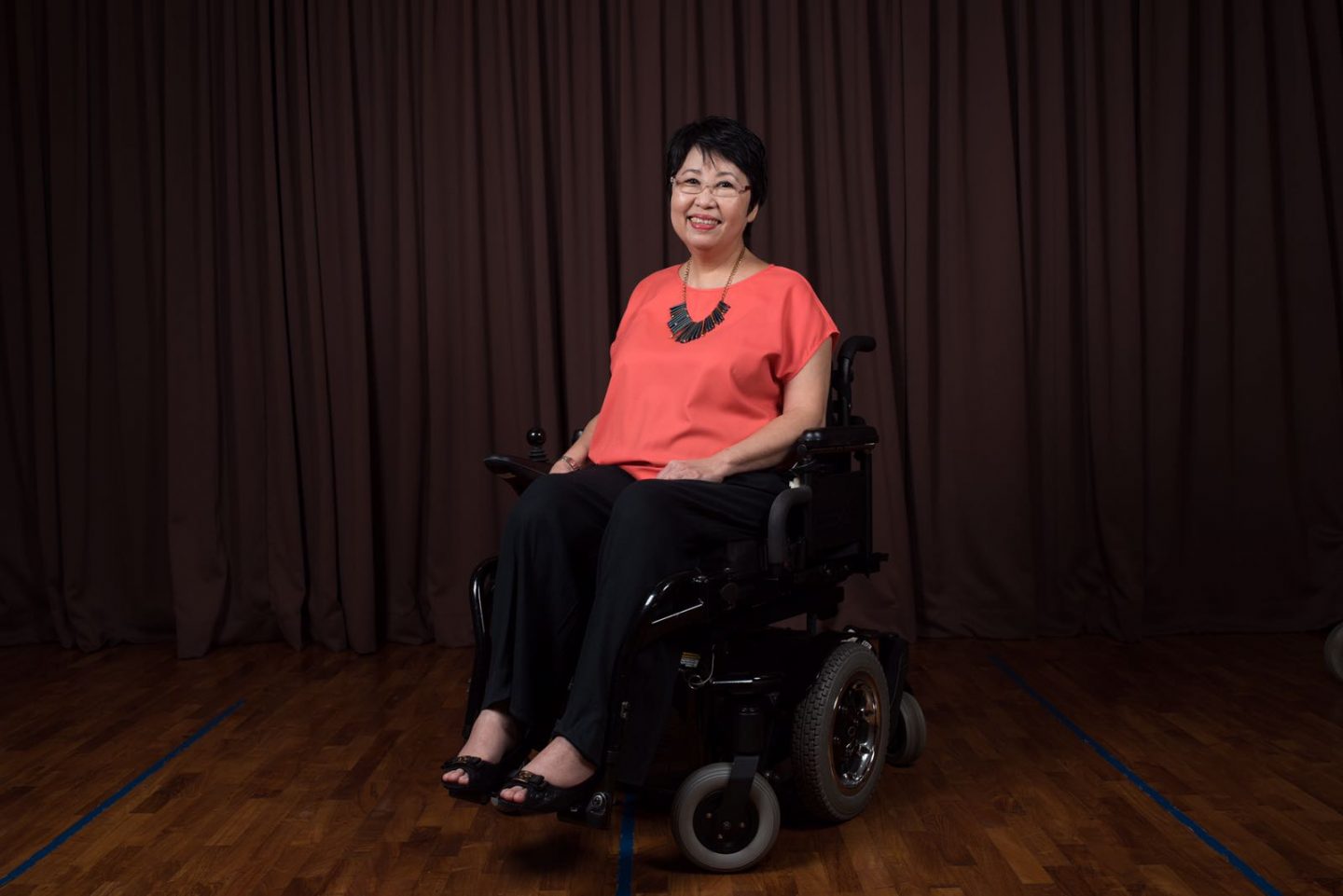
Sherena Loh, a panelist at the first CCDM module, is the executive director of the Muscular Dystrophy Association (Singapore). Photo by Goderic Tia.
“If you notice someone (who has a disability) … you can approach them and ask, do you need help? How can I help? So at least they know there’s an anchor person they can turn to,” said Loh, who is the director of the Muscular Dystrophy Association (Singapore).
Noting that there are people with invisible disabilities, she added that it is vital to build a culture of kindness and helpfulness in church, so that people will feel comfortable opening up about their needs.
Strength through struggles
One participant, Nikki Tay, 55, told Salt&Light that the course was “skilfully planned”, with the topics taught through lecturers, activities, timely breaks and dialogues.
People with disabilities have a role to play because they are all given gifts from the Spirit.
Tay, a special education therapist in private practice, particularly enjoyed the dialogue sessions, which showed him a glimpse of the struggles that people with disabilities face, as well as their strengths as they overcome these struggles daily.
“I hope that every church will open their doors and hearts to people with disabilities and their families. The Church has to be truly inclusive … the time is now.
“People with disabilities have gifts and talents that God can use to bless others. They should not be seen as charity cases. Rather, they are also disciples that God can use mightily.”
Interested in building a disability-inclusive church?
The second module of the Certificate of Christian Disability Ministry (CCDM), called Sowing the Seeds of Faith: Including People with Special Needs in Sunday School, is now open for registration.
It will be held over two days via Zoom on October 31 and November 7, from 9am to 5.30pm. It is targeted at church leaders and lay Christians who are interested in the skills to teach people with special needs in Sunday School.
The syllabus includes:
- A theology of Sunday School
- Identifying children with special needs
- Teaching and learning for children with special needs
- Behavioural management and managing meltdowns
- Dialogues with special needs Sunday School superintendents
- Syllabus planning
- Partnering with stakeholders
Click here for more information.
How do we enable differently abled persons to be full participants in the community of faith?
New course launched to help churches build disability-inclusive communities
Call Me By Name stories give voice to those with special needs
We are an independent, non-profit organisation that relies on the generosity of our readers, such as yourself, to continue serving the kingdom. Every dollar donated goes directly back into our editorial coverage.
Would you consider partnering with us in our kingdom work by supporting us financially, either as a one-off donation, or a recurring pledge?
Support Salt&Light